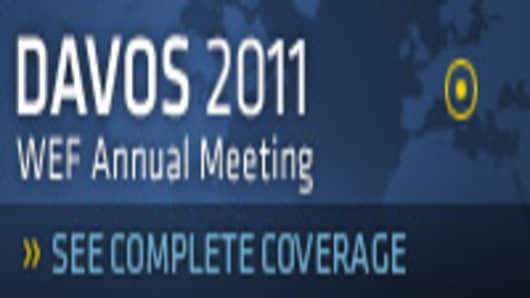The selection of Qatar to host the 2022 World Cup was a huge boost not only for soccer fans in the region but also frontier markets investors.
“The decision shows confidence in the region and will result in a huge infrastructure spend,’’ says Joe Rohm, manager of the T. Rowe Price Africa & Middle East Fund .
Qatar is one of 30 countries classified as “frontier markets” by index provider MSCI Barra.
Frontier markets typically have economies that have developed close to the same degree as emerging markets but have stock markets lacking in size and liquidity compared to emerging and developed markets. Their stock markets also offer limited accessibility to foreign investors.
Many frontier markets are what Rohm calls “young democracies” and face ongoing political risks like the government revolt that recently occurred in Tunisia. Business corruption is also a threat just as it is in some emerging markets.
Despite these shortcomings, frontier markets have a place in the portfolios of investors willing to bear the higher risks of the nascent asset class.
“The correlation between frontier markets and other markets is relatively low, as a result they offer some potential for diversification in a global portfolio,” says Dmitris Melas, head of equity and applied research at MSCI Barra.
T. Rowe Price’s Rohm seeks to minimize risk by investing in the more liquid stocks in the more liquid markets of Africa and the Middle East, regions which represent about 70 percent of frontier markets.
The markets he favors include Nigeria, Kenya, Ghana, Zambia and Mauritius in Africa; in the Middle East he favors Qatar, Saudi Arabia, the United Arab Emirates and Oman.
Rohm also taps these regions through stocks listed on the London Stock Exchange with significant sales in frontier markets such as Tullow Oil and African Barrick Gold. In addition, stocks in emerging markets like South Africa, such as Standard Bank of South Africa, and Egypt provide another window into the frontier. There are also companies like Kenya’s East African Breweries and Nestle Foods Nigeria that are majority owned by Western conglomerates.
Middle East And Africa
“Having a multinational parent gives me confidence about a company’s governance and operations,’’ says Rohm, who says he bases his investments around themes.
In the Middle East, for instance, commodities and oil have a huge impact. The spike in oil prices above $90 per barrel is a boon for producers that start becoming profitable at $40 to $55 per barrel.
Meanwhile, Middle East infrastructure spending is spurring the growth of non-oil sectors. Qatar was already spending 50 percent of its GDP on infrastructure and that figure should rise as it prepares for the World Cup.
Elsewhere, Saudi Arabia is expected to invest $300 billion in infrastructure over the next five to eight years to support companies like food and dairy producer Almarai. A top-10 holding of the fund, Almarai tends to 100,000 cows in air-conditioned sheds in the desert.
Opportunities in Africa are being driven by a growing consumer class. Nigeria’s population of 150 million provides a growing market for food and beverage companies. Banks like Guaranty Trust Bank have been reformed and recapitalized and are now attracting foreign investment.
Mark Mobius, manager of the Templeton Frontier Markets Fund , considers frontier markets as the “next” emerging markets and says the risks of investing in these markets can be mitigated through research.
“A frequent concern is about the quality of the company management,’’ Mobius recently wrote to investors. “Frontier market investing often requires additional time and due diligence to assess the quality of the management team including more frequent on-site visits to evaluate the business effectively. Whether in Nigeria, Kenya or Vietnam, we have found that more and more companies are led by a management team that has been educated in the West.”
Mobius has a more than 50 percent weighting in the Middle East and Africa but also steers his fund to countries like Kazakhstan and Pakistan.
“Kazakhstan has vast natural resources such as oil, gas, copper, uranium and a host of other minerals,’’ Mobius wrote recently. “As a result of the billions of dollars pouring into the country to develop those resources, we believe Kazakhstan has become the economic engine for Central Asia.”
Templeton Frontier Markets also has exposure to Argentina, previously classified as an emerging market but demoted in recent years to frontier status due to the devaluation of its currency and hyperinflation. The ability of frontier countries to grow their stock markets and be reclassified as emerging markets can boost the value of companies in those markets.
MSCI could decide in June to reclassify Qatar and United Arab Emirates as emerging markets countries. This move would force index funds and other managers that run emerging markets funds to buy stocks in those countries to keep pace with the emerging markets benchmark.
Entry Through ETFs
Besides mutual funds, a handful of ETFs also provide exposure to frontier markets, primarily in the Middle East and Africa. Van Eck Market Vectors Gulf Statescovers Middle East countries. Wisdom Tree Middle East Dividend Fund, Van Eck Market Vectors Africa Index, and PowerShares MENA Frontier Countries Portfolio all own a mix of frontier and emerging markets stocks.
While MSCI maintains a broader Frontier Markets Index, no index funds or ETFs yet exist to track it. That spells opportunity for investors.
“Frontier market valuations are attractive,’’ says Rohm. “They haven’t run as hot as emerging markets over the last four years due to the lack of a benchmark index.”



